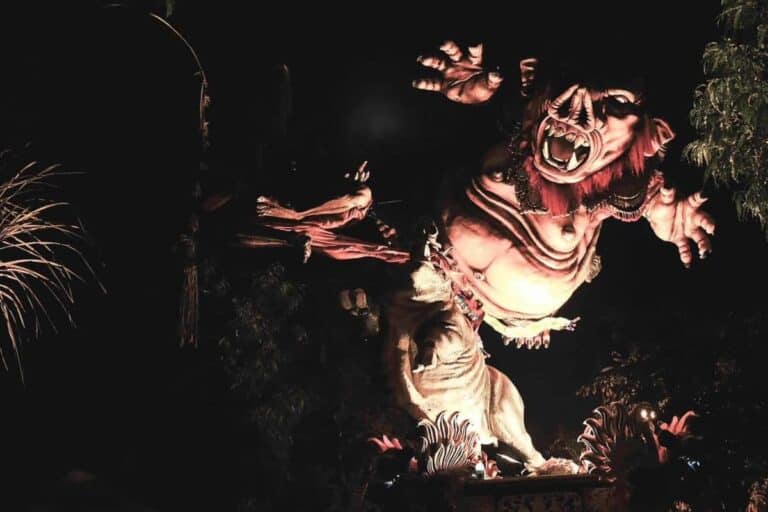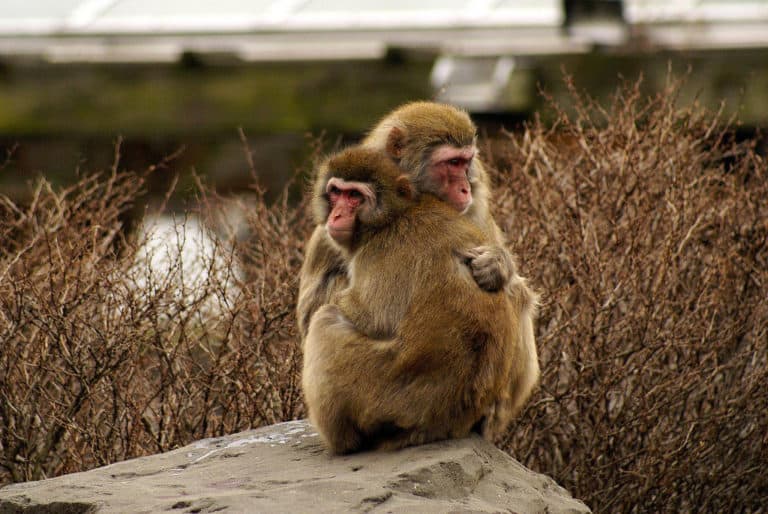The island of Bali and its dogs have had a mutually beneficial relationship for a long time. They need and benefit from each other.
Balinese dogs need food from the people, while the people feel safe as they are protected by the dogs.
When you visit Bali, you will see dogs randomly roaming the streets. A lot of them are not strays, they have owners who let them freely roam.
Kintamani Dogs are a native breed, originating from the Kintamani region of Bali.
They are typically guard dogs, who are alert but friendly pets.
Let’s get to know more about these adorable fluff balls!
The History of Kintamani Dogs
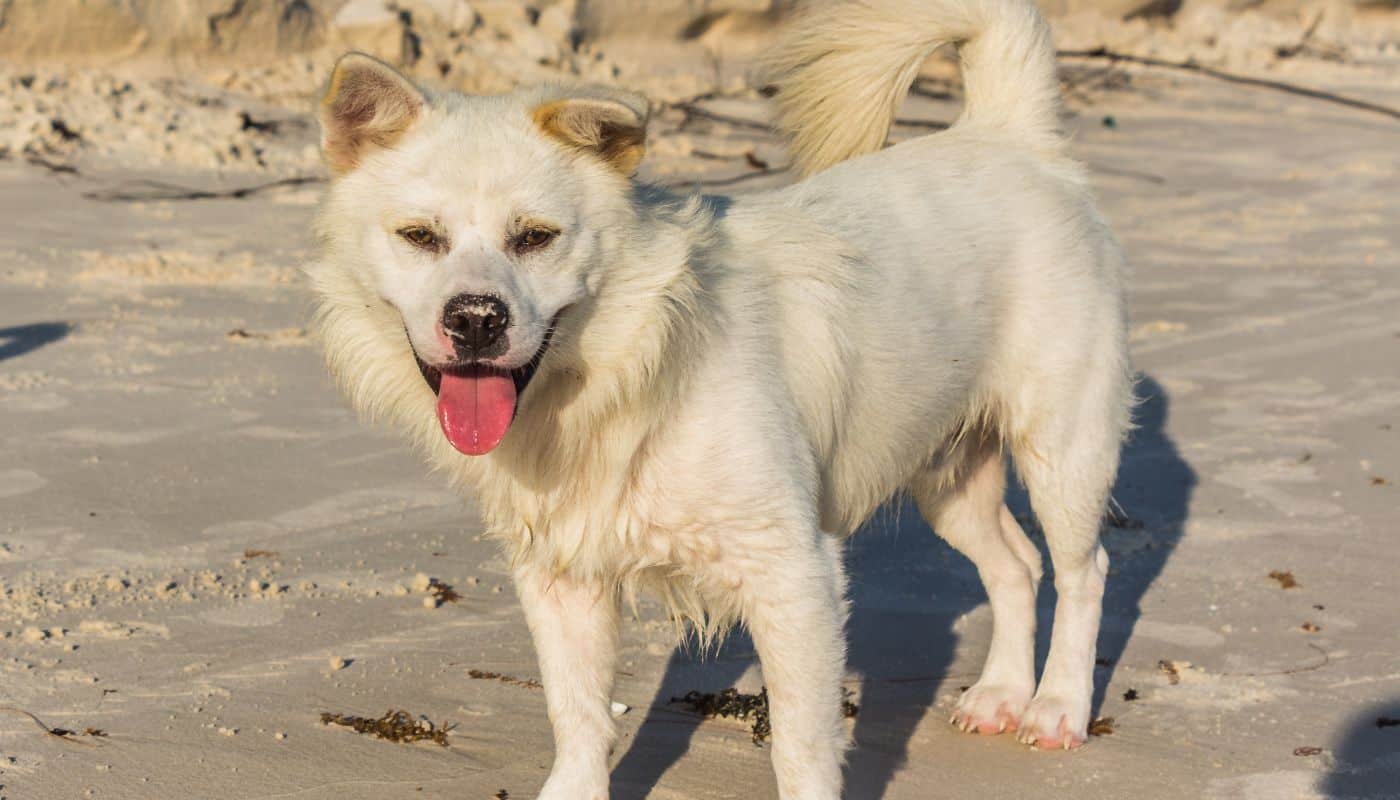
The in-depth history of the Kintamani dog is found in a study entitled ‘The Kintamani Dog: Genetic Profile of an Emerging Breed from Bali, Indonesia‘ conducted by I Ketut Puja in 2005.
In the study, I Ketut Puja discovers that the Kintamani dog is classified as an ancient dog, around since 1400.
The unique breed is the result of crossbreeding chow-chows with local Bali dogs.
It is believed that a Chinese merchant migrated from China over to Bali to marry a member of the Raja Jaya Pangus family, settled in Kintamani. He brought with him his chow-chow, which began to breed with the local Bali dogs. Creating its very own type of dog.
Kintamani dogs were originally named kuluk gembrong. Kuluk meaning dogs, gembrong meaning bushy.
They are genetically very close to dingos, the wild dog of Australia, and bare a very similar resemblance.
Traits of a Kintamani Dog
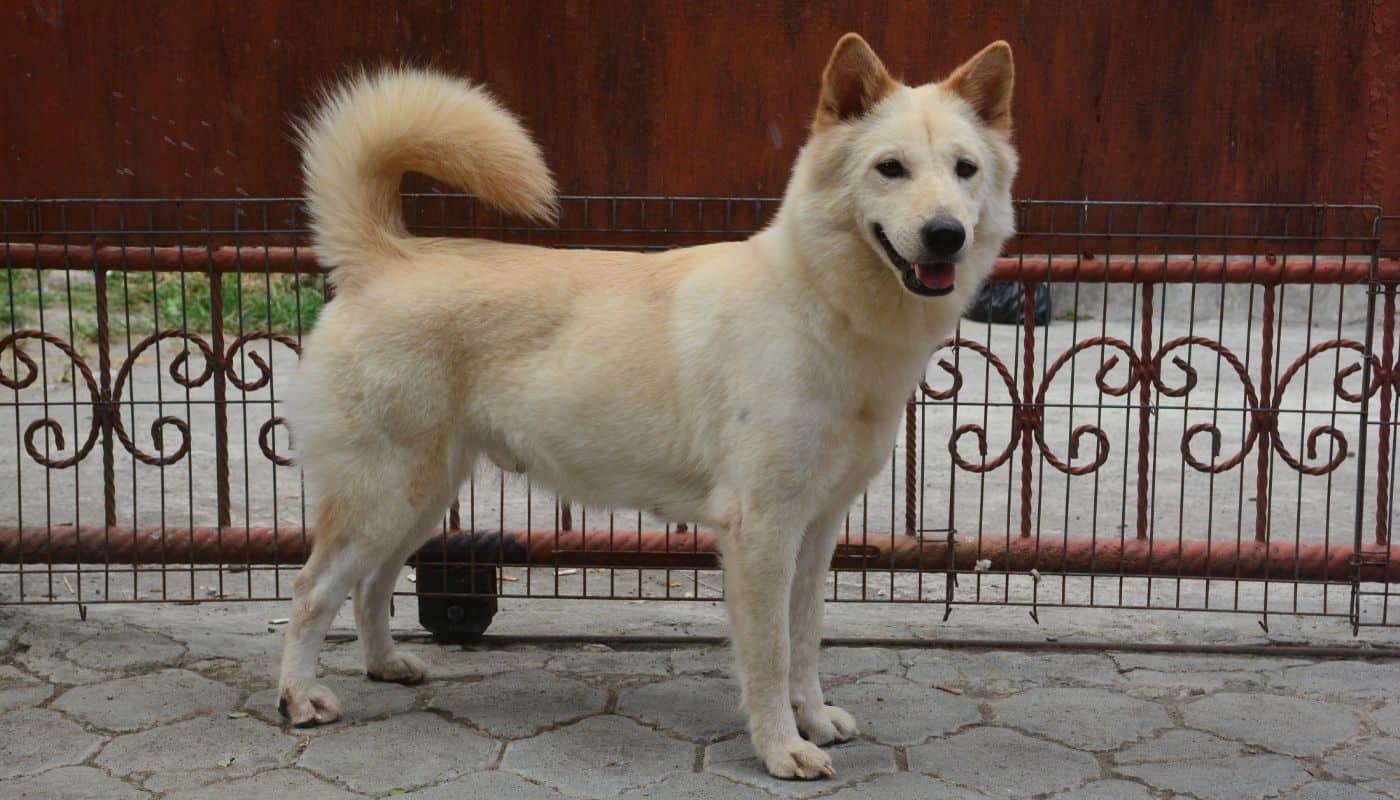
Kintamani dogs are recognized as one of the world’s oldest dog breeds. Around for almost 3000 years, their environment and natural traits have changed dramatically.
Originally, Kintamani dogs were mountain dogs. They lived in Kintamani, in the valley of Mount Batur, with a cool temperature and high altitude.
Nowadays, Kintamani dogs can be found all over the island (some lucky ones even make it overseas). From the beach to in-land towns, each individual dogs adapts to its environment.
A Kintamani can be spotted by its signature characteristics;
- thick fur
- strong, sturdy body
- very fluffy and slightly curved tail
- pointy, stand-up ears
- normally plain white or solid black coat, though you will occasionally find a brown Kintamani.
Their behaviour is what makes them such a popular dog around Bali.
They are brave, agile, and alert, with a high degree of suspicion. They are known as reliable guards and will take good care of their owners.
Kintamani dogs are incredibly territorial, and genetically are prone to attack. However, with correct training and trust in their owners, this is less likely to happen.
International Recognition of the Kintamani Dog
The Kintamani dog has been internationally recognized by the Fédération Cynologique Internationale (FCI) as a native breed to Indonesia.
Kintamani dogs can take part in international competitions and dog shows, showing off the incredible skills and obedience to the world.
Other Dogs in Bali
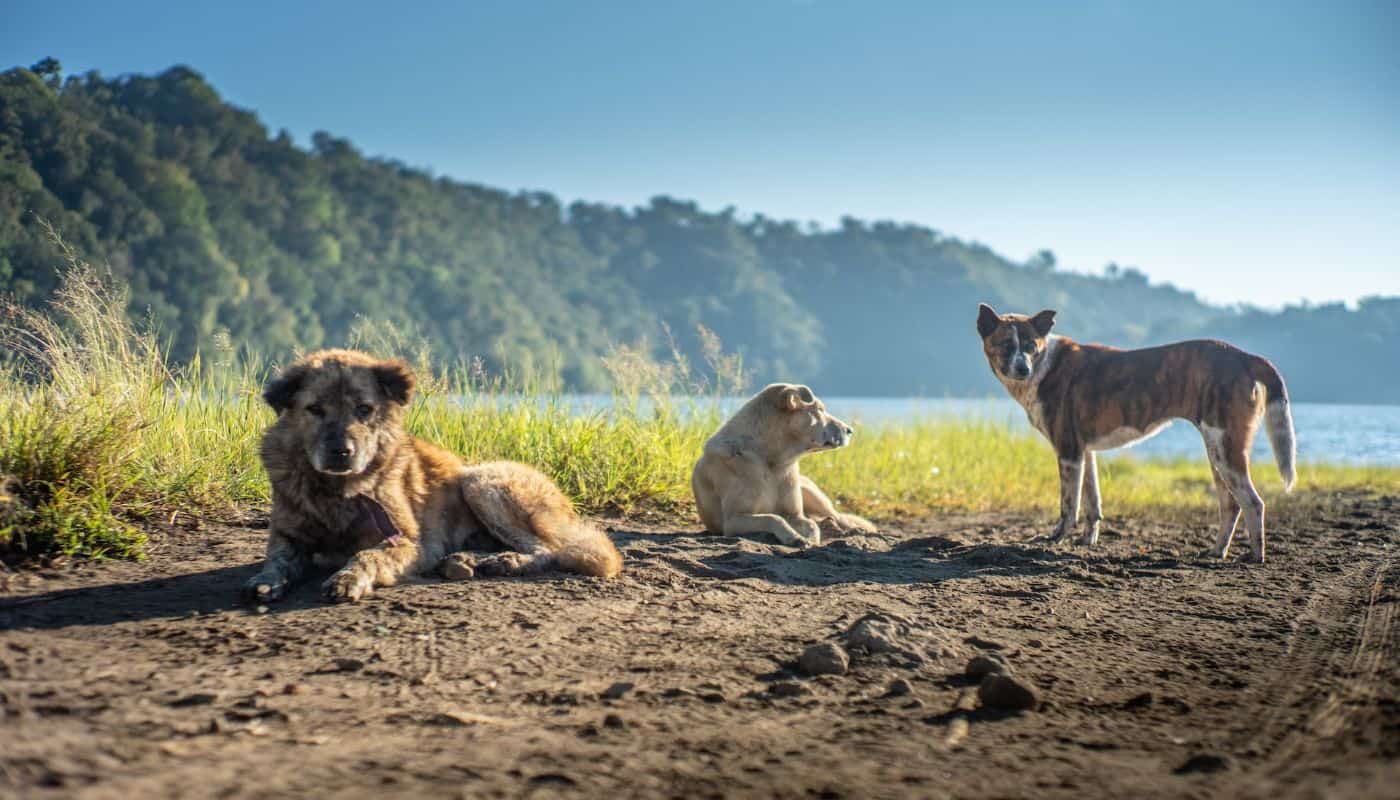
Bali has a huge range of dog breeds, from the fashionable to the classic ol’ Bali dog.
The island often feels overrun with dogs, especially strays who can sometimes cause trouble on the streets.
It’s important when you are heading to Bali to be aware that some people allow their dogs to free roam. Not every dog you see running around is a street dog!
A lot of the dogs are so used to people, they are totally comfortable and relaxed in the presence of strangers.
Others can become aggressive, as they feel threatened by unexpected situations or visits.
If you find yourself in a face-off with a street dog;
- Keep calm and slowly walk away – they can sense your fear
- If you can’t leave, stay and freeze where you are
- Avoid eye contact
- Send a calming signal
- Ask the locals for help
There are a lot of diseases passed between street dogs if they have not been properly cared for. One of those is rabies.
Although not required to enter into Bali, it is worth getting if you plan to be around dogs, or are just nervous.
Bali Dog Organizations

There are a whole host of organizations in Bali who work to help the street dogs.
Feeding them, giving medical assistance and sterilizing, a huge part of their job is to decrease the number of dogs finding their way onto the street, Kintamani dogs included.
Here are some of the most well-known projects on the island;
- Bali Animal Welfare Association (BAWA) – provides assistance to the street dogs like free ambulance, adoption programs, rabies programs, street feeding, and humane population control.
- Bali Dog Adoption and Rehabilitation Centre (BARC) – do street sterilization programs, educational programs for the Balinese community about caring for dogs, and has a clinic where Bali dogs can be taken care of. They also have an adoption center, a retail outlet, and a merchandise store to raise funds.
- Bali Pet Crusaders – have a sterilization project which uses mobile sterilization units to travel around the island and help communities to sterilize local dogs and cats.
- Mission Pawsible – help to rescue, rehabilitate and rehome dogs and cats. You can make general donations or purchase goodies from their online store, with 100% of profits going to animals in need.
- Bali RUSS (Rumah Singgah Satwa) – protect dogs from disease, abuse, consumption, and elimination by providing proper healthcare, sufficient nutrition, and a decent place to live before finding them forever home.
- The Bali Dog – rescue the ancient heritage dogs of Bali by rescuing, fostering and finding homes. They have a daily feeding program in Jimbaran and Kedonganan Beach areas to keep stray dogs’ stomachs full.
- Bali Paws – provide not only proper food, clean water, and medical assistance, but also education about animal welfare and regular neutering days.
Final Thoughts
The Kintamani dog is a beautiful, friendly and, to be frank, HELLA CUTE breed that will be a friend for life.
Fluffy, tame and obedient, they are a perfect family pet and home guard.
If you have the chance while on the island, support one of the local charities to ensure the safety and health of all of Bali’s dogs.


